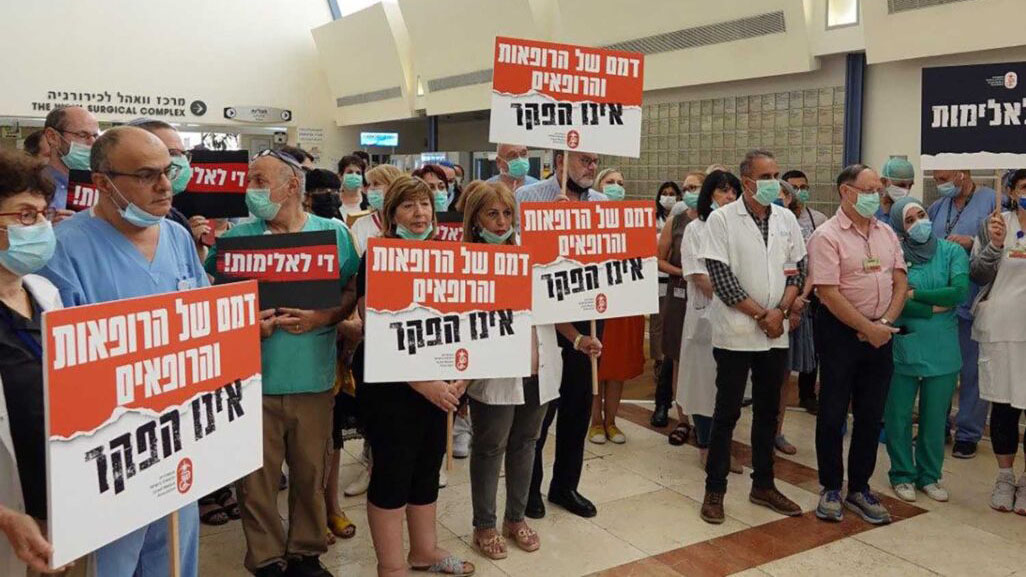
Doctors in Israel went on strike this Thursday and Friday, following a serious assault incident at the Clalit Health Services clinic in the central city of Be’er Ya’akov, in which a family doctor was severely beaten with an iron bar by a patient. Nurses also joined the strike on Thursday, as well as pharmacists employed by Clalit.
The doctors' strike will include all the hospitals and community clinics in Israel, and the work that will take place on Thursdays and Fridays will be conducted under Clalit’s Shabbat operating framework, which sees patients on a much more limited basis.
About a month ago, doctors went on strike for a day following a serious assault in a hospital of medical staff at Hadassah Mount Scopus in Jerusalem. Following the attack, a government decision was made to expand the deployment of police officers to all hospitals, after a previous government decision on the matter from 2017 was only partially implemented.
The more recent attack at the clinic highlights the need to increase security in community clinics as well, an issue that a committee headed by Professor Shlomo Mor-Yosef. The committee investigated the issue and recommended reinforcements via local security patrols among other methods. In 2017, Tova Carrero, a nurse at the Clalit community clinic in Holon, was murdered by a patient who set her on fire in a treatment room in the clinic.
Chairman of the Israel Medical Association, Professor Zion Hagay, said Tuesday night at the end of a meeting of the organization's central meeting: “Over the past year, we have made it unequivocally clear that any case of violence will be met with zero tolerance on our part. The recent strike led to an important government decision on the placement of policing stations in emergency rooms and the allocation of the necessary personnel, but it’s up to us to make sure these things are actually implemented.”
“As long as we do not see real action in the immediate term, we will continue to intensify our measures until someone here wakes up and realizes that the violence in the health system is a real epidemic,” he continued.
Prof. Hagay reiterated the demand to reinforce the security systems in the community clinics, after it became clear again that the medical staff continue to be exposed to violence throughout the health system.
Ilana Cohen, chairwoman of the nurses’ union, the National Association of Nurses, said upon the announcement of the strike: "We are experiencing a state of emergency in the health system. The ‘violent attack’ that took place yesterday is part of the intensification of the epidemic of violence in the health system”
“We will not allow for this to continue; violence has become a real threat to the safety of nurses and healthcare workers,” she went on. “We must continue to fight violence with a heavy hand, quickly and with determination, as it's only a matter of time before the next murder of a nurse or a healthcare worker."
"We cannot keep silent after the severe assault on the doctor in Be'er Ya'akov. It crossed a red line. By a miracle, it did not end in death,” added Professor Ben Hamo, Chairman of the Clalit Workers' Union.
“Our workers will not be abandoned. We will shut down all clinics and hospitals and demand an end to violence against health officials. We will also be demanding the immediate allocation of resources and an increase in punishment in order to stop this epidemic. We must protect the workers in the HMO system,” he said.
Shimi Hillely, secretary general of the pharmacists’ union, the Histadrut Pharmacists Association, made it clear that pharmacists are also affected by violence.
“We as a union will no longer allow the lives of pharmacists continue to be put in a dangerous situation and ignored,” he said. “We will not relent until the Clalit management takes concrete steps to ensure the safety of the pharmacists who do sacred work for the patients."
This article was translated from Hebrew by Benji Sharp.






